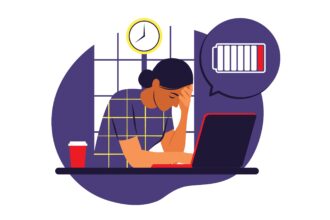The belief that “an ounce of prevention is worth a pound of cure” is so well ingrained that it makes it easy to think we can solve our health care cost crisis the easy way, by increasing spending in one area to bring down costs in another. It doesn’t necessarily work that way, at least in the short term, which is why prevention isn’t a surefire bet to keep down health insurance premiums.
The belief that “an ounce of prevention is worth a pound of cure” is so well ingrained that it makes it easy to think we can solve our health care cost crisis the easy way, by increasing spending in one area to bring down costs in another. It doesn’t necessarily work that way, at least in the short term, which is why prevention isn’t a surefire bet to keep down health insurance premiums.
But an article in today’s New York Times (Working Late, by Choice or Not) indirectly points to the big benefit of wellness and prevention, which is the ability to remain in the workforce into old age, rather than having to retire or slow down substantially based on chronic disease or disability. Millions of baby boomers are now reaching the traditional retirement age of 65, but it’s in their interest and the interest of the country as a whole that many of them continue working for a long while after that.
The big financial payoffs come from enhanced productivity, which increase the size of the economy, increased tax revenues to help cover the deficit, and an ability to counteract shortages in the labor force caused by reductions in immigration, policy changes, or poor planning. While I’m sure older people aren’t happy about it, the fact that fewer retirees have employer paid pensions or health insurance, and that the Social Security eligibility age is rising a bit, increase the level of interest for older people to stay in the workforce.
The Times profile includes a 72 year old home care aide whose IRA lost value, an 87 year old doctor who loves to work, a 77 year old retail clerk still striving to make quota, a 78 year old plumbing inspector who likes to stay active, and a 92 year old Walmart shelf stocker who doesn’t “want to sit down and die” but also probably needs the money.
The article doesn’t describe what these particular folks did to stay active and healthy. But for the population as a whole wellness and prevention can play a big role. Someone who’s 25 can go out drinking every night, eat poorly, not exercise, sleep too little, smoke and still manage to hold down a demanding job. But if they keep it up they’ll be in tough shape by age 65 if not before. Of course, even someone who does everything right from a lifestyle standpoint can still get sick or disabled, but it’s less likely.
One sector of the economy where this phenomenon will help is nursing. We often hear doom and gloom scenarios (usually from self-interested parties) about the coming nursing shortage, as older nurses retire and more people need care. But the scenario I paint is rosier: one where nurses retire later than they have in the past and more seniors in general are up on their feet, not needing nursing care.







